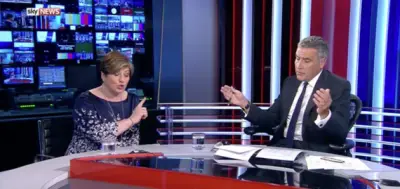When I’m helping people in businesses and charities to prepare for a media interview, I often ask them to explain more, to demonstrate their expertise, to bring their knowledge to life through a pertinent statistic or a brief story. They are often hugely qualified to talk about the subject being discussed in an interview, and have a deep understanding that brings the subject matter to life.
So I’m pretty confident they’d be fine if facing a list of questions from a journalist that tested their knowledge and expertise. It’s not something that happens very often though; the interview ‘pub quiz’ seems to be reserved for politicians.
Latest to be tested was the Shadow Foreign Secretary, Emily Thornberry, using the words ‘pub quiz’ as a put-down to Sky’s Dermot Murnaghan. He asked her to name the French foreign minister, her counterpart should she get into power.
Ms Thornberry said: “No and I’m not going to start answering your questions on this. Do you know what really upsets me about your attitude to me is that you do this with me. I don’t remember you doing it with anybody else you know. Have you done it to David Davis? Have you asked these questions? Do Sky journalists have a go at Boris Johnson on this basis? How about Liam Fox? Do you do pub quizzes with them? Can we talk about some serious stuff?”
Ms Thornberry suggested the interview focussed on the situation in Syria, or North Korea.
So Mr Murnaghan asked Ms Thornberry if she could she name the South Korean President, or did she know the gender of the President, who’s the leader of a country reportedly threatening to nuke its neighbour, North Korea.
Nope.
The media interview pub quiz, as it will probably now be called for evermore, is a blunt journalistic tool. Knowing the price of a pint of milk (see Boris Johnson) doesn’t qualify you for power. But here’s why journalists do it. Their job is to call to account the people in positions of responsibility. To check their readiness to carry out their job.
A GP should be able to diagnose a wide variety of ailments. A teacher should have the wider knowledge needed to provide the understanding behind a curriculum. And so a Shadow Foreign Secretary should be able to identify the main players in global politics.
And for those preparing for interviews, remember journalists are always searching for absolutes, for ‘yes’ or ‘no’ answers, because absolutes make headlines. ‘Shadow Foreign Secretary cannot identify European counterpart’ is a stronger headline than ‘Shadow Foreign Secretary may not be able to identify European counterpart’. And ‘pub quiz’ questioning produces absolutes, in a short amount of time.
Ministers, and shadow ministers, get briefings before big interviews, including David Cameron the Guardian has revealed. They employ highly-paid people paid to do research for them – often broken down in to a ‘two-pager’ according to former Head of Comms for the Lib Dems, Baroness Grender, on the BBC’s Today programme this morning.
In other words, ministers get homework. And we all know what happens to people who don’t do their homework. They get into trouble.




